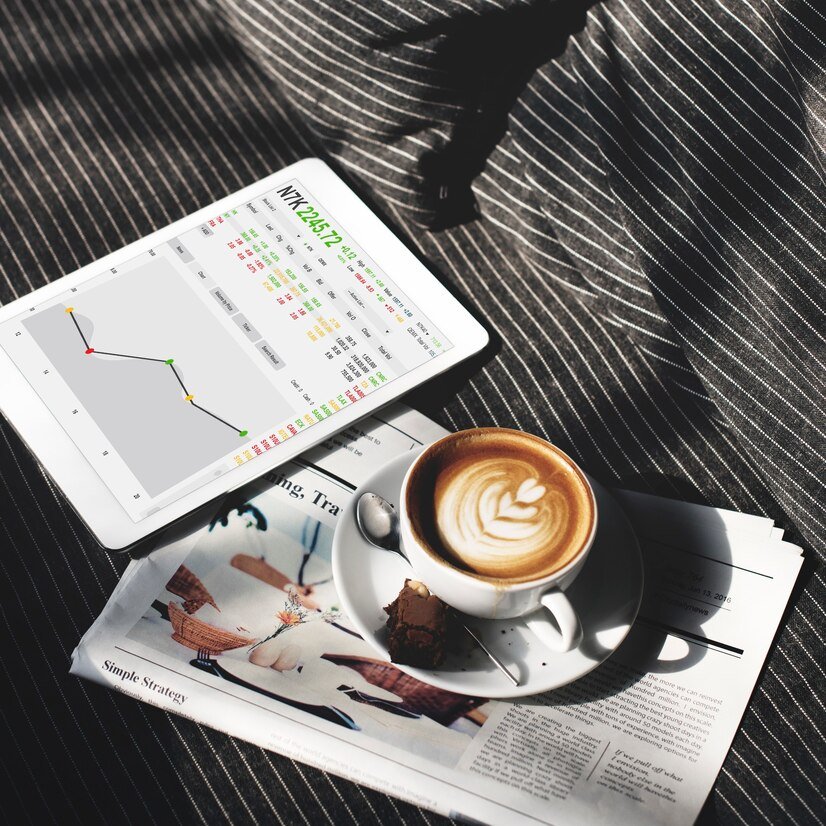Choosing the right platform for forex trading is crucial to your success. With advancements in technology, traders now have access to two main options: mobile forex apps and web-based trading platforms. Each comes with its own strengths and weaknesses, and the choice largely depends on your trading style, goals, and personal preferences.
In this blog, we’ll explore the differences between mobile apps and web-based platforms to help you decide which one is the best fit for your trading needs.
The Rise of Mobile Forex Apps
Mobile trading apps have revolutionized the forex market, offering traders the ability to manage their portfolios and execute trades from the palm of their hand. With a mobile forex app, you can trade anytime, anywhere, as long as you have an internet connection.
Key Features of Mobile Forex Apps:
- Accessibility: Perfect for traders on the go, mobile apps allow you to monitor markets and trade from virtually anywhere.
- Real-Time Notifications: Many apps send alerts and push notifications for price movements, market news, or account updates, ensuring you never miss an opportunity.
- User-Friendly Interface: Mobile apps are designed for simplicity, making them ideal for beginners who want an intuitive trading experience.
- Built-In Tools: Most mobile apps include essential tools like charts, technical indicators, and economic calendars, although they may be more basic than those on web-based platforms.
Popular Mobile Forex Apps:
- MetaTrader 4 (MT4) and MetaTrader 5 (MT5)
- eToro
- cTrader
- Plus500
The Strengths of Web-Based Platforms
Web-based trading platforms are typically accessed via a desktop or laptop computer through a browser. They are designed to provide a more comprehensive trading experience, catering to traders who require advanced tools and in-depth market analysis.
Key Features of Web-Based Platforms:
- Advanced Charting and Analysis: Web platforms often have more detailed charting tools, multiple timeframes, and customizable indicators compared to mobile apps.
- Faster Execution: With more processing power and stable internet connections, desktop platforms are often faster, reducing the risk of slippage during volatile market conditions.
- Multi-Screen Capability: Web platforms allow traders to monitor multiple charts and assets simultaneously, making them ideal for day traders and scalpers.
- Greater Customization: Traders can set up complex layouts, automate strategies, and use additional tools like Expert Advisors (EAs) with ease.
Popular Web-Based Platforms:
- MetaTrader Web Terminal
- TradingView
- Thinkorswim
- Interactive Brokers
Head-to-Head Comparison
To help you make an informed decision, here’s a detailed comparison of mobile forex apps and web-based platforms:
| Feature | Mobile Forex Apps | Web-Based Platforms |
|---|---|---|
| Portability | Access anywhere with a smartphone | Requires a computer or laptop |
| Ease of Use | Intuitive and beginner-friendly | Steeper learning curve |
| Tools and Features | Basic tools and limited customizations | Advanced tools and extensive features |
| Screen Real Estate | Small screen size, less ideal for analysis | Large screens for detailed analysis |
| Execution Speed | May experience delays on mobile networks | Faster execution with stable connections |
| Customizability | Limited customization | Highly customizable layouts |
| Best For | Casual or part-time traders | Professional and advanced traders |
Which One Should You Choose?
The right platform for you depends on your trading style, goals, and lifestyle. Here’s a breakdown of what to consider:
Choose Mobile Forex Apps If:
- You’re Always on the Move: Mobile apps are ideal for traders who need to monitor the market and place trades while commuting, traveling, or multitasking.
- You Prefer Simplicity: If you’re a beginner or only trade occasionally, mobile apps offer an intuitive and easy-to-use interface.
- You Value Notifications: Mobile apps keep you updated with real-time alerts, helping you stay on top of market movements.
Choose Web-Based Platforms If:
- You Need Advanced Tools: For detailed technical analysis, backtesting, or algorithmic trading, web platforms are the superior choice.
- You’re a Full-Time Trader: If trading is your primary focus, a web-based platform will give you the tools and functionality you need to execute complex strategies.
- You Trade Multiple Assets: Web platforms are better suited for traders who monitor and trade across multiple markets simultaneously.
The Best of Both Worlds: Combine Mobile and Web Platforms
For many traders, the best solution is to use both mobile apps and web-based platforms. Mobile apps can serve as a convenient backup for monitoring trades or reacting to urgent market changes, while web platforms can be used for in-depth analysis and planning.
How to Combine Both Platforms Effectively:
- Plan and Analyze on the Web: Use your web-based platform to perform detailed analysis, backtest strategies, and execute well-planned trades.
- Monitor and Adjust on Mobile: Keep an eye on the market and manage trades while away from your desk using your mobile app.
Many brokers and trading platforms offer seamless integration between their mobile and web platforms, allowing you to switch between the two without losing track of your trades or data.
Conclusion
The choice between mobile forex apps and web-based platforms ultimately depends on your trading style, goals, and lifestyle. Mobile apps excel in accessibility and convenience, making them perfect for traders on the go. On the other hand, web-based platforms provide the advanced tools and features necessary for professional and full-time traders.
For the best trading experience, consider leveraging both options to suit your needs. Whether you’re analyzing charts on a web-based platform or monitoring your trades via a mobile app, today’s technology ensures that you can trade efficiently and effectively, no matter where you are.

